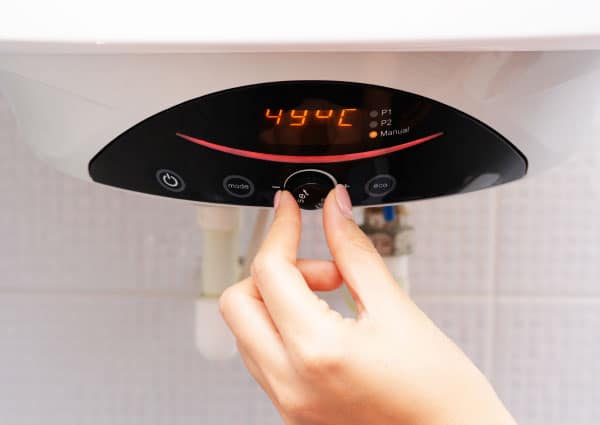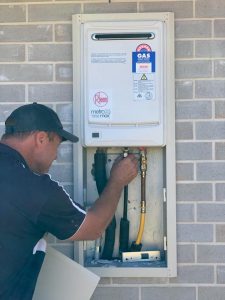Handling the Frequently Arising Water Heater Urgent Problems
Handling the Frequently Arising Water Heater Urgent Problems
Blog Article
Have you been hunting for guidance about Common Hot Water Heater Problems?

A hot water heater is one of one of the most crucial fundamental appliances that can be discovered in a house. With water heaters, you do not require to undergo the tension of heating water by hand each time there is a requirement to wash, wash, or the meals. There is always a possibility that your water heater would certainly act up as with a lot of mechanical gadgets.
It is very important to note any little breakdown as well as tackle it rapidly prior to things get out of hand. A lot of times, your water heater begins to malfunction when there is a build-up of debris as a result of constant usage. As a preventative measure, periodic flushing of your hot water heater is recommended to avoid debris buildup and avoid useful failure.
Common water heater emergencies as well as just how to take care of them
Leaking water heater tank.
A leaky container could be an indicator of deterioration. It can trigger damages to the floor, wall as well as electric gadgets around it. You can even be at threat of having your house swamped. In this circumstance, you should turn off your hot water heater, enable it to cool down, and also carefully try to find the source of the issue. Sometimes, all you require to do is to tighten a few screws or pipe links in cases of minor leakages. If this doesn't function and also the leak continues, you could need to utilize the services of a professional for a suitable substitute.
Varying water temperature level.
Your water heating unit could begin producing water of different temperatures usually ice hot or cool warm. There could be a requirement to replace either the heating or the thermostat device of your water heating unit.
Insufficient hot water
Dealing with a not enough supply of warm water can be aggravating. It might be that the hot water heater can't support the warm water need for your apartment. To handle this issue, you might try to change your heating system's temperature level dial and also await a couple of mins. If the trouble lingers, you can request for the aid of a specialist plumber. You could update your water heating system to one with a larger capacity.
Discolored or smelly water
When this occurs, you require to know if the concern is from the container or the water source. If there is no amusing odor when you run cold water, after that you are certain that it is your water heater that is faulty. The smelly water can be caused by corrosion or the buildup of bacteria or debris in the water heating system storage tank.
Conclusion
Some house owners disregard little caution and minor faults in their water heater system. This just causes additional damage as well as a possible complete break down of your home appliance. You must take care of your hot water heater faults as soon as they come up to avoid even more expenditures as well as unnecessary emergency problems.
With water heating systems, you don't need to go via the stress and anxiety of home heating water manually every time there is a demand to take a bathroom, do the laundry, or the recipes. Your water heating unit can begin producing water of various temperatures generally ice chilly or hot hot. It might be that the water heater can't sustain the hot water need for your apartment. If there is no amusing scent when you run cold water, after that you are certain that it is your water heating unit that is damaged. The stinky water can be triggered by corrosion or the buildup of bacteria or sediments in the water heating unit container.
What’s Wrong With My Water Heater?
Not Enough Hot Water
You probably encounter this problem in the shower or while washing dishes. As you run your water, you’ll notice it starting to cool down. Turning up the hot faucet may not work, or it may only heat the water for a short period. Your hot water probably comes back and works normally one or two hours after you use it up.
If you’ve never had enough hot water, your heater may be too small for your home. If you haven’t had a problem until recently, there’s probably something’s wrong with your heater’s thermostat. Try adjusting it to see if you can feel a difference. Even if the thermostat’s working, the heating element itself could have burnt out. It’s also possible that a clog has restricted water flow into or out of the heater. Luckily, none of these problems are hard to fix, as long as you call them in early.
Water is Too Hot
Unregulated water heaters can make water dangerously hot. You probably have this problem if you’ve been scalded by your hot water. It’s also a likely culprit if you have trouble getting your faucets to produce a comfortable temperature. This problem is easy to fix, but it can also be a serious health hazard if you don’t address it. If you think your water is too hot, don’t doubt yourself; look into it!
Start by finding your heater’s thermostat and mark its position with a pen. Turn the thermostat to a cooler setting. Wait a couple hours to see if the problem is solved. If it isn’t, listen for boiling in the tank and look for water that comes out of the faucet steaming. In those cases, your temperature-pressure relief valve may be malfunctioning. This is a serious problem that can be dangerous, so you should have it looked at right away.
Discolored or Smelly Water
If all your water looks rusty or smells weird, there’s probably a problem with your pipes. If only your hot water looks weird, however, your water heater is probably at fault. Hot water discoloration comes in several varieties. It could look orange or brown-ish, taste rusty, or feel grainy. It could also look yellow or green-ish and taste gross or feel slimy. Either way, it’s a sign that there’s something wrong with your water heater’s tank.
Usually, hot water discoloration means sediment has built up in your tank. Sediment is made up of hardened minerals that accumulate on the inside of the water heater’s walls. When enough sediment builds up, it causes all kinds of problems–including your discolored water. Try flushing your water heater tank to clean out built up sediment. If the water still tastes rusty, your tank’s rust-preventing anode rod may have worn out. A pro can replace an anode rod easily, but without one, your tank could rust beyond repair relatively quickly.
Leaking
Water heaters can leak from several different places, and each leak means something different. If the leak is coming from a pipe above the heater, it’s possible the tank itself hasn’t been compromised. The cold inlet, hot outlet, and T&P pipes could all leak from above. Try tightening the problematic valve. If that doesn’t work, then the valve or pipe will have to be replaced.
If the leak is coming from the bottom of the tank, it’s important to determine exactly where it is. The leak could be coming out of the drain valve or your T&P valve below the tank. You can replace those valves and preserve the tank itself. If you notice the water tank itself leaking, however, that probably means it’s corroded beyond the point-of-no-return. Leaking water heaters are a big deal, so you should get yours replaced ASAP.
https://www.punctualplumberdallas.com/blog/whats-wrong-water-heater/

I'm just very involved in Warning Signs You Need Water Heater Repairs and I really hope you liked the piece. Enjoyed reading our blog posting? Please share it. Help others check it out. Bless you for your time. Kindly come by our website back soon.
Expertise? Call us! Report this page